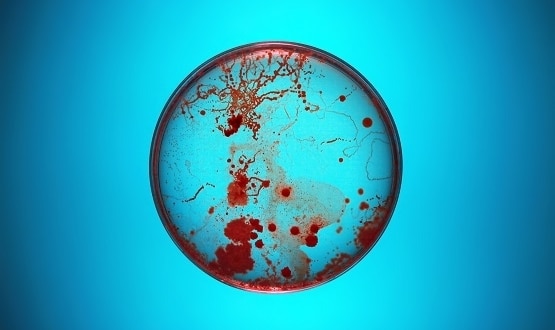AI identifies new antibiotic that can kill drug-resistant bacteria
- 21 February 2020

Researchers in the US have used artificial intelligence (AI) to discover a powerful new type of antibiotic capable of killing drug-resistant bacteria.
Scientists at MIT trained a machine learning algorithm to analyse the molecular structures of chemical compounds and pick out potential antibiotics.
The deep learning model was designed to identify compounds capable of killing bacteria using different mechanisms to those of existing drugs.
After analysing some 2,500 different molecules, the AI system identified a new antibiotic compound which, in lab tests, killed many of the world’s most problematic disease-causing bacteria, including drug-resistant strains.
The new antibiotic compound has been dubbed halicin, named after the the rogue AI system, Hal 9000, from 1968 film 2001: A Space Odyssey.
James Collins, professor of medical engineering and science at MIT’s Institute for Medical Engineering and Science and Department of Biological Engineering, said the discovery marked a breakthrough in the fight against antibiotic resistance.
“We’re facing a growing crisis around antibiotic resistance, and this situation is being generated by both an increasing number of pathogens becoming resistant to existing antibiotics, and an anemic pipeline in the biotech and pharmaceutical industries for new antibiotics,” said Collins.
“Our approach revealed this amazing molecule which is arguably one of the more powerful antibiotics that has been discovered.”
Few new antibiotics have been developed in the past decade and current methods for screening new drugs are costly, requiring significant time investment.
It is hoped the machine leaning model could be used to design new drugs based on what it learned about chemical structures that enable drugs to kill bacteria.
Researchers were also able to identify “several other promising antibiotic candidates”, which they plan to test further.
Roy Kishony, a professor of biology and computer science at the Israel Institute of Technology, Technion, said: “This ground-breaking work signifies a paradigm shift in antibiotic discovery and indeed in drug discovery more generally.
“Beyond in silica screens, this approach will allow using deep learning at all stages of antibiotic development, from discovery to improved efficacy and toxicity through drug modifications and medicinal chemistry.”
The NHS recently launched a £140 million award to help realise the possibilities AI technologies can bring to healthcare, including better targeted therapies and increased detection rates for long-term diseases like cancer.
The award, run by the Accelerated Access Collaborative in partnership with NHSX, forms part of the £250 million AI Lab announced by Prime Minister Boris Johnson last year.





